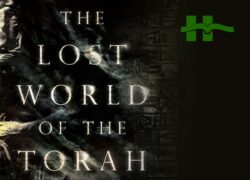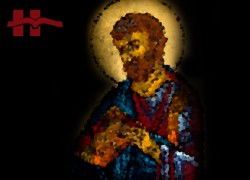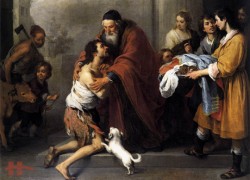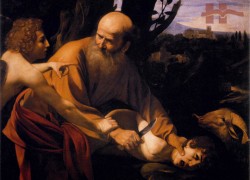Pericopal Theology
Interview on H & H
Folks, here is a recent interview of mine on Homiletics & Hermeneutics (H & H) ….
“Applicable,” not “Obeyable”!
For those interested in following my writing endeavors, there is a new article I’ve written for the Journal of the Evangelical Homiletics Society available here.
It is actually an essay-length book review of John H. Walton and J. Harvey Walton, The Lost World of the Torah: Law as Covenant and Wisdom in Ancient Context (Downers Grove: InterVarsity, 2019). This volume is part of InterVarsity’s Lost World series and the second tome co-authored
Another New Commentary!
This is a rehash of an old post, to announce my new commentary that’s just come out: Ephesians: A Theological Commentary for Preachers.
I’m frequently asked by my students about commentaries I employ in my preaching prep.
The Preacher sought to find delightful words and to write words of truth correctly. The words of wise men are like goads, and masters of these collections are like well-driven nails; they are given by one Shepherd.
A New Commentary!
This is a rehash of an old post, to announce my new commentary that’s just come out: Genesis: A Theological Commentary for Preachers.
I’m frequently asked by my students about commentaries I employ in my preaching prep.
The Preacher sought to find delightful words and to write words of truth correctly. The words of wise men are like goads, and masters of these collections are like well-driven nails; they are given by one Shepherd. But
Texts and Stained Glass
Biblical authors’ literary products are agenda-driven and discoursed for a purpose, not merely created to convey information. They carefully selected and shaped their material to convey their respective theological agendas (pericopal theology). Think of what authors can do to just one facet of life, time; it is the authors’ prerogative to tweak it any which way they wish: flash forwards, flash backs, summaries, ellipses (gaps in the story), pauses (for explanatory
Pericopal Theology Distinguished
I have, in previous posts, discussed the entity I label “pericopal theology,” the theology specific to a particular pericope, representing a segment of the plenary world in front of the canonical text that portrays God and his relationship to his people. Pericopal theology is, in my conception, the crucial intermediary in the sermonic move from text to application.
Pericopal theology differs from systematic or biblical theology (at least as they are commonly defined).
The Aqedah (Genesis 22)
The Aqedah is the term given to the account of the “sacrifice” of Isaac by Abraham. The word is derived from the Hebrew verb ‘qd which means “to bind”—thus referring to the binding of Isaac at the altar of his sacrifice.
Then they came to the place of which God had told him;
and Abraham built the altar there and arranged the wood,
and bound his son Isaac and laid him on the altar, on top of the wood.
Genesis 22:9
The account of Abraham’s trial in Genesis


















 Abe Kuruvilla is the Carl E. Bates Professor of Christian Preaching at The Southern Baptist Theological Seminary (Louisville, KY), and a dermatologist in private practice. His passion is to explore, explain, and exemplify preaching.
Abe Kuruvilla is the Carl E. Bates Professor of Christian Preaching at The Southern Baptist Theological Seminary (Louisville, KY), and a dermatologist in private practice. His passion is to explore, explain, and exemplify preaching.